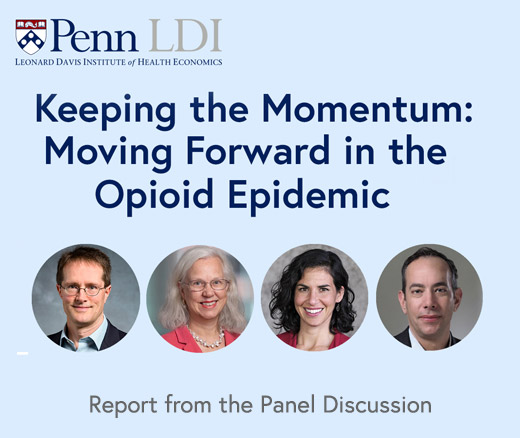
Paying for Healthy Choices
Evidence From More Than 600 Studies Reveals When Financial Incentives Move the Needle—And When They Don’t
Blog Post

Two identical patients who arrive in the emergency department with the same surgical condition may receive different treatments based on one factor—the on-call surgeon.
Consider a patient who develops bacterial pneumonia and needs antibiotics. Treatment guidelines help clinicians select the appropriate dosage and duration of care.
But in emergency surgery, the choices are rarely this certain.
While decision-making is an essential skill for all surgeons, we do not know how surgeons decide whether to operate. Several researchers have conducted surveys of surgeons to try and answer this question. However, decision-making in hypothetical scenarios may not reflect real-world behavior.
As a first step, we turned to discharge data from real patient encounters to better understand how a surgeon’s decision on whether to operate translates into differences in treatment regimens across patients.
Emergency general surgery is a set of time-sensitive surgical conditions that can be treated both medically or surgically (for example, cholecystitis—inflammation of the gallbladder and diverticulitis—inflammation of the colon). Because the decision to operate can be genuinely unclear, and patients are often randomly assigned to the on-call surgeon, we chose to study surgical decision-making in this setting.
We examined all patients hospitalized with emergency general surgery conditions in three states from 2016 to 2020. We found that the average surgeon operated on 55% of the patients they treated for these conditions. These rates varied dramatically across surgeons, with some operating on as few as 1% and others on as many as 93% of their patients. The rates also varied by specific disease, and most surgeons had different individual operative rates for each condition they treated.
These results demonstrate that surgeons provide a substantial amount of both operative and non-operative care. We still do not know why or how surgeons make these decisions. Operative preferences may be influenced by surgeon personality, where and how they trained, or where they practice.
It is important to consider that, nationally, operations are reimbursed at higher rates better than medical management, and many surgeon compensation packages incorporate procedural targets. This may incentivize some surgeons to choose more invasive interventions. This phenomenon is known as physician-induced demand. Policymakers and health systems should consider this when designing surgical compensation models.
Surgeons also rarely receive information about how their performance compares with that of other surgeons. They may want to know how their own operative patterns differ from their peers. This type of feedback could help us determine the optimal treatment for some of these surgical diseases across practice settings with varying resource availability.
Future research is required to better understand the factors that influence these decisions and to guide the development of optimal treatment regimes in emergency general surgery.
The study, “Quick Cuts: Surgeon Tendency to Operate in Emergency General Surgery,” was published November 5, 2025 in the Journal of Surgical Research. Authors include Rachael C. Acker, Jacob Walker Rosenthal, Jasmine Hwang, James E. Sharpe, Elinore Kaufman, Heather Wachtel, Giorgos Karakousis, and Rachel R. Kelz.



Evidence From More Than 600 Studies Reveals When Financial Incentives Move the Needle—And When They Don’t

Penn LDI Panel Urges Family-Focused Strategy and Stronger Health System Response

Remote Nurses Improved Quality Slightly but Can’t Replace Nurses at the Bedside, a New Study Finds

Washington State’s First-in-the-Nation Insurance Plan Begins Payouts in Mid-2026, and Researchers Will Weigh its Effect on Care, Costs, and the Long-Term Care Markets

Without Pressure From Congress, NHANES — Which Helped Uncover High Levels of Childhood Lead, Nutritional Deficiencies, and Forever Chemicals — Will Cease to Exist

A Multi-State Study Finds That Parents Often Travel 60+ Miles—With Distance, Insurance, and Race Driving Gaps in Maternal Care